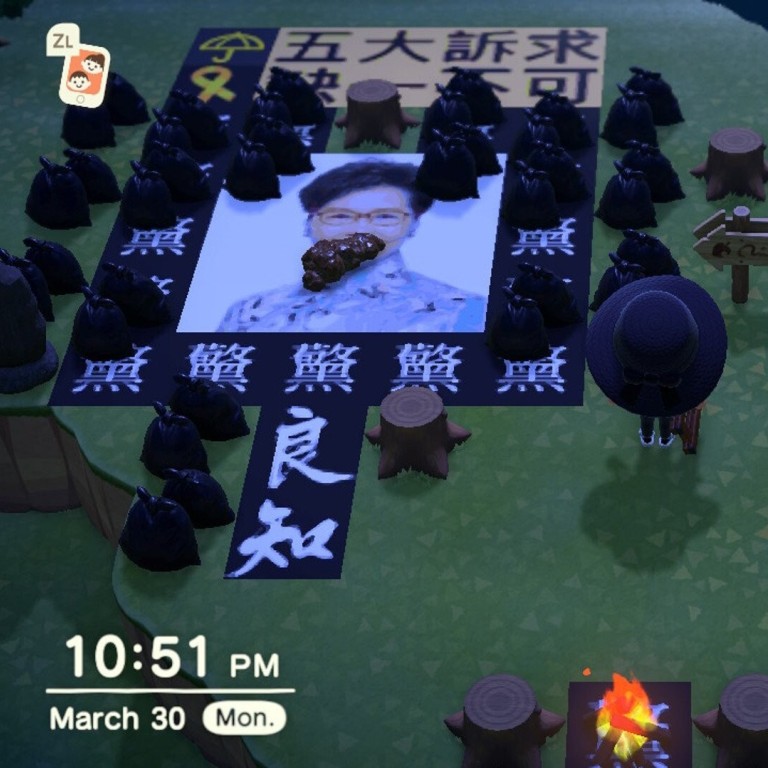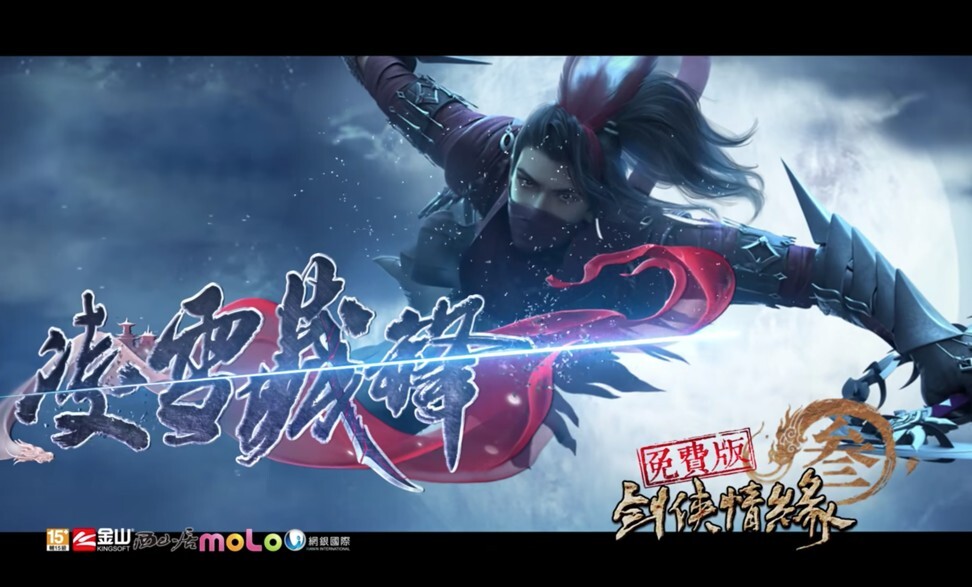
China may clamp down on politically sensitive content in popular video games
- Recent controversies could prompt the Cyberspace Administration of China to scrutinise the video game sector, analysts say
- China is the industry’s biggest market, with more than 720 million gamers across mobile, desktop personal computer and console hardware
Chinese authorities may be spurred to clamp down on video games which can be used by players as platforms for politically sensitive content, following incidents involving popular titles from Nintendo and Seasun Games.
“Regulations on gaming are bound to be more strict and more detailed,” said Ding Daoshi, director of research at internet consultancy Sootoo in Beijing, based on recent controversy over content posted by players on Nintendo’s Animal Crossing: New Horizons and Seasun’s JX3.
Players in mainland China blamed that disappearance on Hong Kong pro-democracy leader Joshua Wong Chi-fung, who had posted on Twitter that he plays the game and that it has served as an online gathering place for their movement.

Seasun, a subsidiary of Hong Kong-listed Kingsoft Corp, also issued a 10-year suspension to each of the offending Taiwanese gamers.
Although China’s video games industry is directly under the State Administration of Press and Publications (SAPP), Sootoo’s Ding suggested that these recent incidents could prompt scrutiny from the Cyberspace Administration of China (CAC), the main regulator, censor and policymaker for the country’s internet industry. He said the CAC, which was formed in 2014, has a rigid approach in overseeing online content in e-commerce, search engines and apps.
Kyoto-based Nintendo, Seasun and the CAC did not immediately respond to separate requests for comment on Thursday.
Speculation on the video game industry’s potential scrutiny by the CAC comes after stringent new internet rules took effect in China last month. The regulations – which were announced by the CAC in December, but implemented from March 1 – put responsibility for any objectionable content on the websites that host it as well as the service providers, content producers and users.
The rules state that content posted online should be mainly positive, uplifting and devoid of rumours.
China tightens controls on internet to try to keep things positive online
Further scrutiny from regulators could put additional pressure on China’s video games market, which had struggled through a nine-month freeze on new game licences in 2018 amid a regulatory revamp. Since then, the SAPP has increased enforcement in a bid to close certain “loopholes that have been around for years”, according to a recent report by research firm Niko Partners.
Hong Kong protesters and mainland gamers clash in Grand Theft Auto V Online
Mainland Chinese and Hong Kong gamers clashed online in December last year on the action adventure game Grand Theft Auto V, developed by UK-based Rockstar North. The players staged a virtual battle in which mainland Chinese gamers dressed as riot police, drove trucks with water cannons and threw grenades at the Hong Kong gamers.
Preventing increased regulatory scrutiny may force game developers and online operators to adapt to the times. Zheng Jintiao, co-founder of media outlet Gamer Boom, said a number of Chinese developers and publishers are creating more child-friendly games and titles with a focus on traditional Chinese culture.
“You have to learn to express [something less conservative] more subtly, rather than be obvious,” Zheng said.
China is the video game industry’s biggest market in Asia and the world, with more than 720 million gamers across mobile, desktop personal computer and console hardware, according to Niko Partners. It projected this market to generate about US$36 billion in revenue this year, up from US$33 billion in 2019.

